Eric Irons OBE, Britain’s first black magistrate and well-known campaigner for social justice and worker’s rights in Nottingham’s black community, was honoured with a plaque unveiling on 1 October at the National Justice Museum.
On what was the first day of Black History month, Eric Irons’ family held a celebration of his life and achievements and with help from Nottingham City Council, Nottingham Civic Society, the National Justice Museum and Nottingham Together, the celebration included a plaque unveiling at 12.30pm.
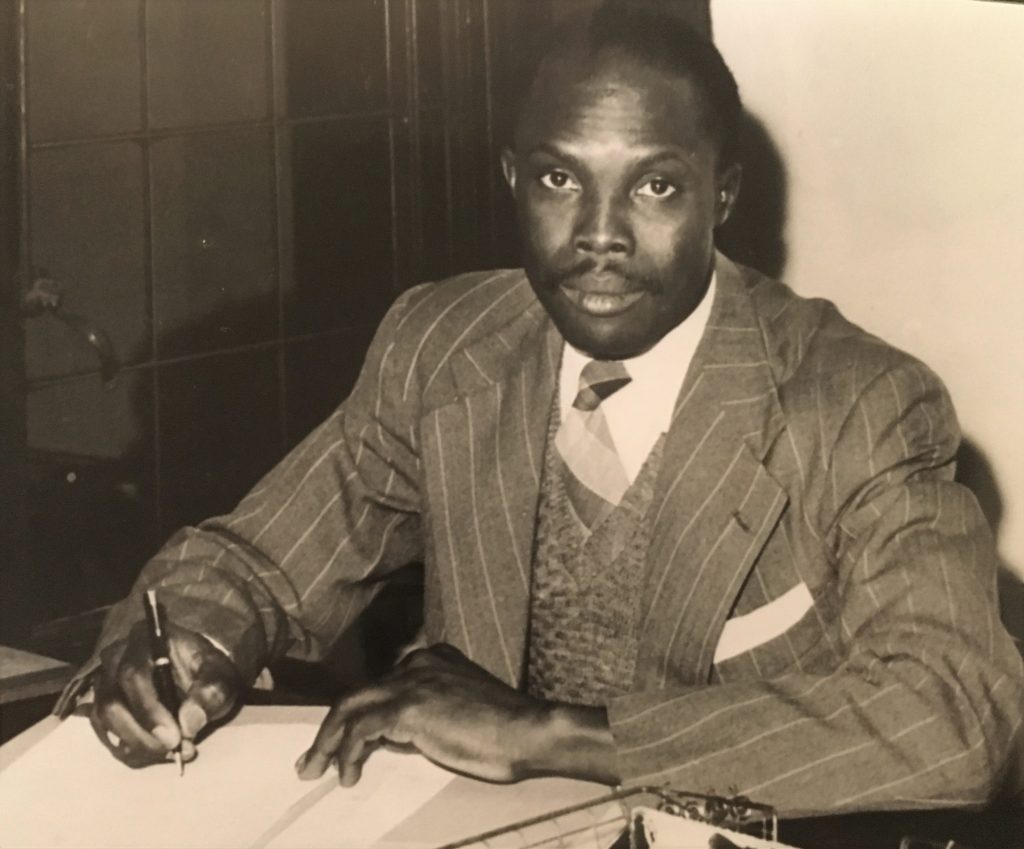
Born in Jamaica in 1921, Irons first came to the UK when he served in the Royal Air Force during World War II, and afterwards settled in Nottingham with his wife, who he met in Nottingham. They went on to have six children and sixteen grandchildren.
During the 1950s, Irons, who was working at the Chilwell Ordnance Depot, become an important local community figure, campaigning for better employment opportunities, health and education for black workers through the Nottingham and District Trades Council and community and church groups.
Among his many achievements, he managed to help lift a ban on black people working for a transport company and helped Nottingham City Council address problems highlighted following the 1958 Race Riots.
Irons made history in 1962 when he became Britain’s very first Black Justice of the Peace (magistrate). As a champion for social justice, Irons was also awarded an OBE in 1977 and continued to serve on the bench in Nottingham for 29 years until retiring in 1991. Eric Irons sadly passed away in August 2007 having paved the way for equality in the city.
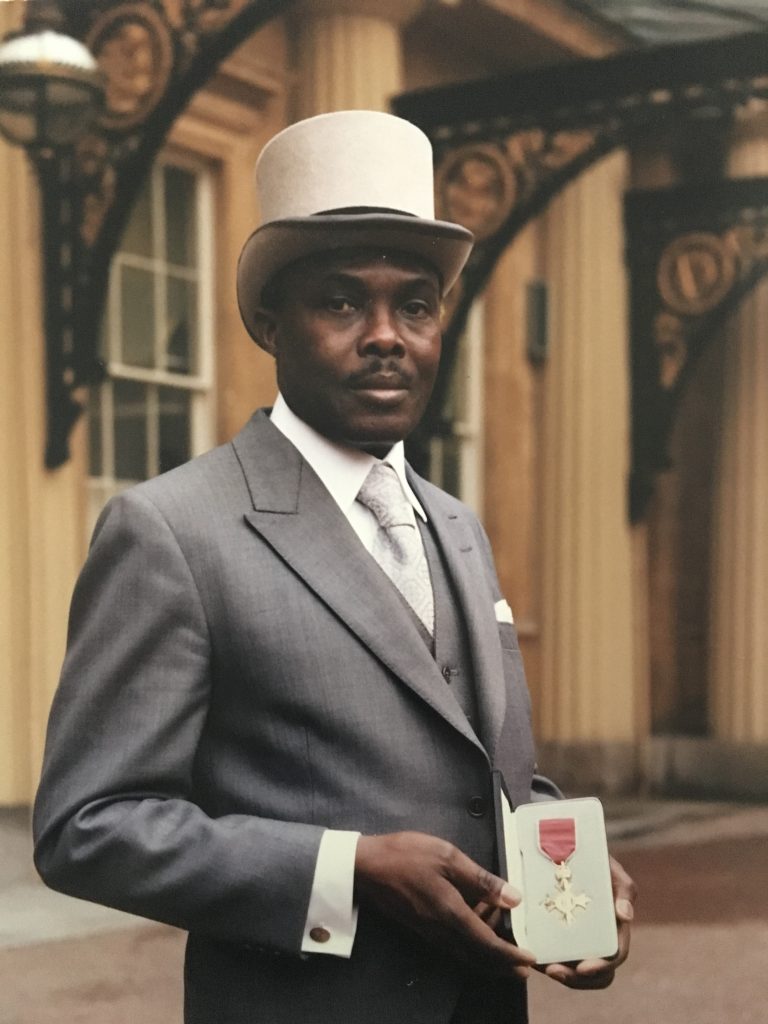
Eric Irons’ sons said “This plaque is a wonderful way to secure the legacy of our father, Eric Irons, as a man who devoted his whole life to serving people of all colours, religion, age and the whole community.
“In so doing, not only was he a remarkable role model to his family, but his selfless and courageous work helped to ensure we have a more equitable understanding and tolerant society that benefits us all. The family is understandably very proud of him and it is reassuring and comforting to know that Nottingham City is too. My father received a number of honours throughout his life, including the OBE, Jamaican Badge of Honour, Honorary Degree from Nottingham University, first black Justice of the Peace in Britain. This plaque would have given him equal pleasure.”
Cllr Chantal Lee, Executive Assistant for Housing at Nottingham City Council said, “We’re proud that on the first day which marks the start of Black History Month, the city’s heritage of supporting social justice is recognised and remembered.
“The commemorative plaque will act as a permanent reminder of Eric’s legacy and the active and important contribution he made to our city.
“Nottingham’s heritage plays an important part of the city’s past, present and future and anyone can get involved to ensure it is appreciated and remembered for many years to come.”
Bev Baker, Senior Curator and Archivist, National Justice Museum said, “We are incredibly honoured to be marking and celebrating the contribution that Eric Irons made to the justice system in Nottingham and his dedication as a campaigner for social justice. It’s also fitting that this celebration is taking place on the first day of Black History Month, as it is vitally important to champion diversity in our city and diversity within our justice system.”
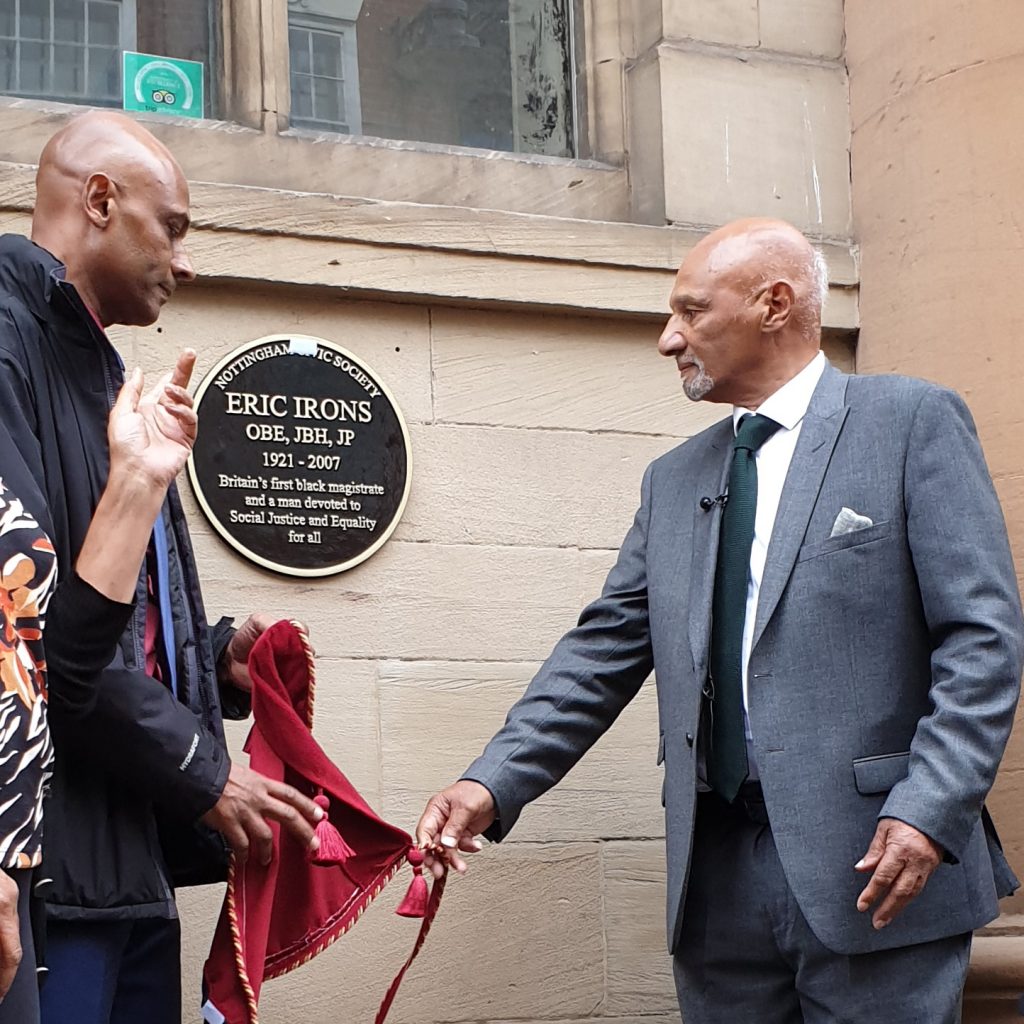
Eric’s Sons unveil the plaque 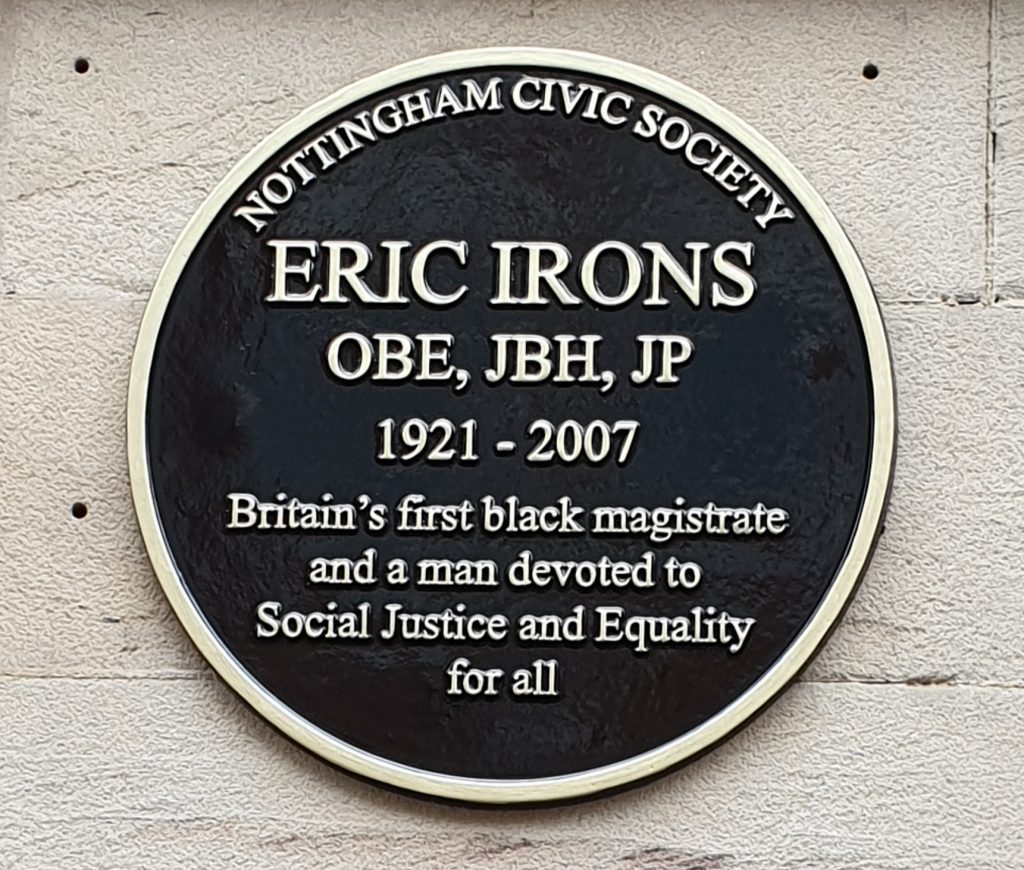
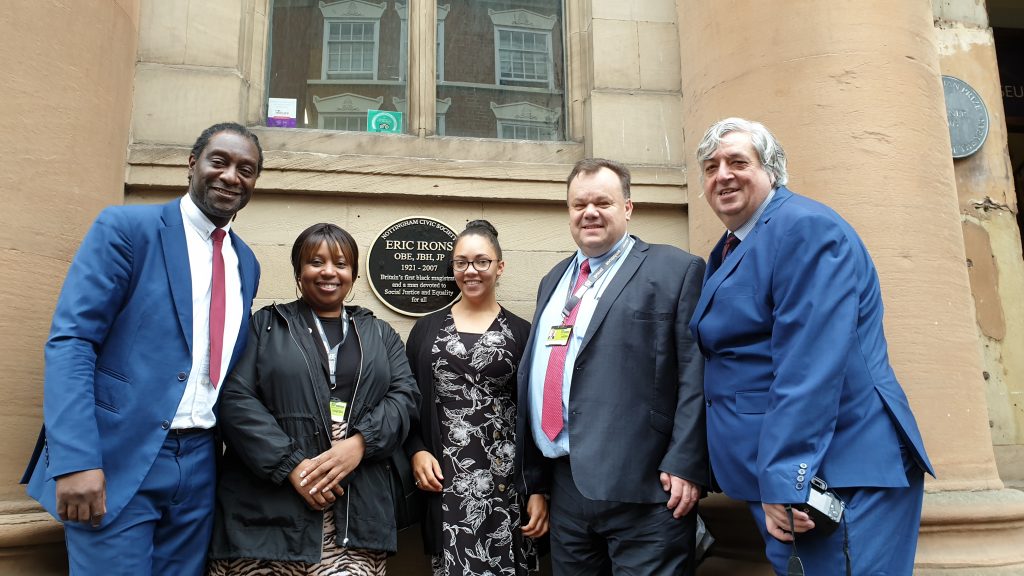
Hilary Silvester, Chair of the Nottingham Civic Society, said “Nottingham Civic Society is delighted to be involved in the creation of this plaque. We think Eric Irons work was very important to the people of Nottingham and to the Nation as a whole. We are happy to join with Eric’s family, Nottingham Together, the National Justice Museum and Nottingham City Council in celebrating his work and life”
